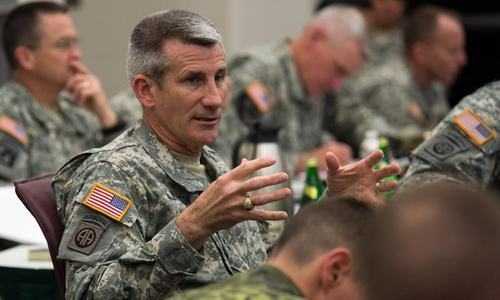UNITED NATIONS: Prime Minister Shahid Khaqan Abbasi will highlight the Kashmir and Rohingya issues in his address to the 72nd United Nations General Assembly and is likely to use his interactions with American officials to halt a rapid deterioration in US-Pakistan relations.
The prime minister, who reached New York on Monday afternoon, is scheduled to meet a dozen world leaders during his four-day stay, but all eyes are focused on his Sept 21 meeting with US Vice President Mike Pence.
The Trump administration sent not a very subtle message while scheduling President Donald Trump’s engagements with world leaders: Pakistan was kept out of even casual meetings with Mr Trump. The US president’s first casual meeting on Monday was with Bangladesh’s Prime Minister Haseena Wajid when he walked up to her after addressing a UN Management, Security and Development event and greeted her warmly.
Later in the week, President Trump is also scheduled to meet Afghan President Ashraf Ghani. But diplomatic sources in Washington say that PM Abbasi’s meeting with the US vice president also conforms to the Trump administration’s new strategy.
PM is likely to use his Sept 21 meeting with US Vice President Mike Pence to halt deterioration in ties
The administration usually brings forward the vice president for detailed, strategic dialogues and the Abbasi-Pence meeting reflects Washington’s desire for holding serious talks with Pakistan on the Afghan issue.
However, unlike former prime minister Nawaz Sharif last year, Mr Abbasi plans to attend the US president’s reception for the world leaders this week, which could lead to a brief encounter with Mr Trump.
When President Trump announced his new strategy for South Asia in his Aug 21 speech, he blamed Pakistan for continuing to shelter Taliban militants — a charge Pakistan vehemently denies.
But after the speech, US officials said at several briefings that they wanted to hold an extensive dialogue with Pakistan on the Afghan issue because they desired to work with Islamabad in defeating the militants who were a threat to the entire region. Washington also tried to send two delegations to Islamabad but Pakistan asked it to reschedule the meetings.
Briefing the Pakistani media on the prime minister’s engagements in New York, three senior Pakistani officials — Foreign Secretary Tehmina Janjua, Permanent Representative to the UN Maleeha Lodhi and Ambassador Aizaz Ahmad Chaudhry — tried to downplay the impact of US-Pakistan relations on his engagements at the UNGA.
“The prime minister is not here for US-Pakistan relations, this is a global meeting,” said Ambassador Lodhi. “Our policies are not unifocal.”
Ambassador Chaudhry said that Washington took the initiative for arranging the Abbasi-Pence talks. “They initiated it because they want to re-engage with Pakistan,” he said. “If you want to define the UNGA as a bilateral event, you will be wrong.”
The foreign secretary said the United States sought to engage Pakistan in their efforts to stabilise Afghanistan because “the Afghan dispute cannot be resolved without Pakistan”.
All three rejected the suggestion that Pakistan had allowed militants to maintain safe havens in the country and outlined Islamabad’s views on this issue.
“Our policies are made in Pakistan. They were never made in Washington and never will be,” said Ambassador Lodhi when asked if the Abbasi-Pence meeting could change Islamabad’s views on Afghanistan.
Published in Dawn, September 19th, 2017













































